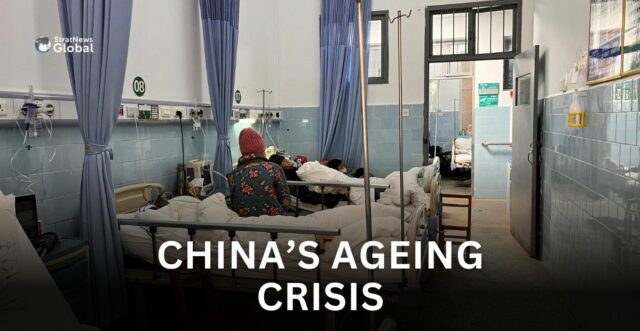It is becoming challenging to get medical care in some rural areas of China, a task that will only get more critical in coming years for ageing rural communities, where about 120 million people are already 60 or older.
China’s development model is at a crossroads, say health and population experts, with a choice between much higher spending on pensions and healthcare or industrial upgrades and urbanisation, which Beijing sees as key to bolstering growth.
The Challenge
At a twice-a-decade meeting of the ruling Communist Party last year, Beijing promised to pursue both.
However, spending vast resources on rural healthcare was “not a good move” right now, a government adviser told Reuters.
“High-quality doctors are unwilling to live in rural areas and low-quality ones cannot provide good services. This is a structural problem,” added the adviser, speaking on condition of anonymity, as the topic is a sensitive one.
Critics say that for China to choose urban and industrial investment over welfare programmes for its low-income rural population would present it with long-term growth risks greater than the short-term gains.
It could exacerbate overcapacity in factories, weaken consumption, and worsen the demographic crisis by pushing people into cities, where they take on busy jobs and live in small, costly apartments, so they tend to have fewer children.
But moving to the city is hardly an option for ageing farmers like Wei, who says, “We don’t have land there. We would need money for food.”
Not tackling villagers’ healthcare needs raises poverty and life expectancy risks in their communities, said Sasha Han, an assistant professor at the Chinese Academy of Medical Sciences.
Rural Doctors Flee
To be sure, during its four decades of breakneck growth, China has made dramatic progress in rural healthcare. In the era of Mao Zedong, most villagers could rely only on so-called “barefoot doctors”, or farmers with minimal medical training.
One assistant physician in Yongchuan, a rural district of the sprawling southwestern city of Chongqing, says his hospital has extensive speciality departments and sophisticated equipment, including its own laboratory.
But the medical staff, numbering 120 to 130, can barely cope with the needs of the 60,000 people they serve.
China’s biggest healthcare challenge is attracting qualified medical staff to rural areas, said Shenglan Tang, a global health professor at Duke-Kunshan University.
Doctors and medical students cite low pay and heavy workloads. A lack of good schools and other facilities deters young health workers from moving families to the countryside, Tang said.
Over the past decade, the number of urban doctors almost doubled to 4.1 million, while the figure for rural doctors dropped 42% to 622,000, more than twice the rate at which the rural population shrank, National Health Commission data show.
Rural medical clinics in China are understaffed and ill-equipped, capable of treating only minor ailments. The demanding jobs with low salaries are forcing doctors to take on additional work to support themselves and their families.
Luring Students
China spent 7.2% of its economic output on healthcare in 2023, the National Health Commission says. That compares with expenditure of 11.5% and 9.7% of GDP in heavily-industrialised and ageing Japan and South Korea respectively, OECD data shows.
High local government debt will make it difficult for China to boost investment in healthcare.
But one strategy by which authorities plan to “markedly narrow” the rural-urban healthcare gap by 2035, laid out in an official policy document from September, is by scrapping tuition fees for some medical students.
In return, the fledgling doctors will pledge to work in rural clinics in pre-graduation placements or after graduating.
(With inputs from Reuters)





